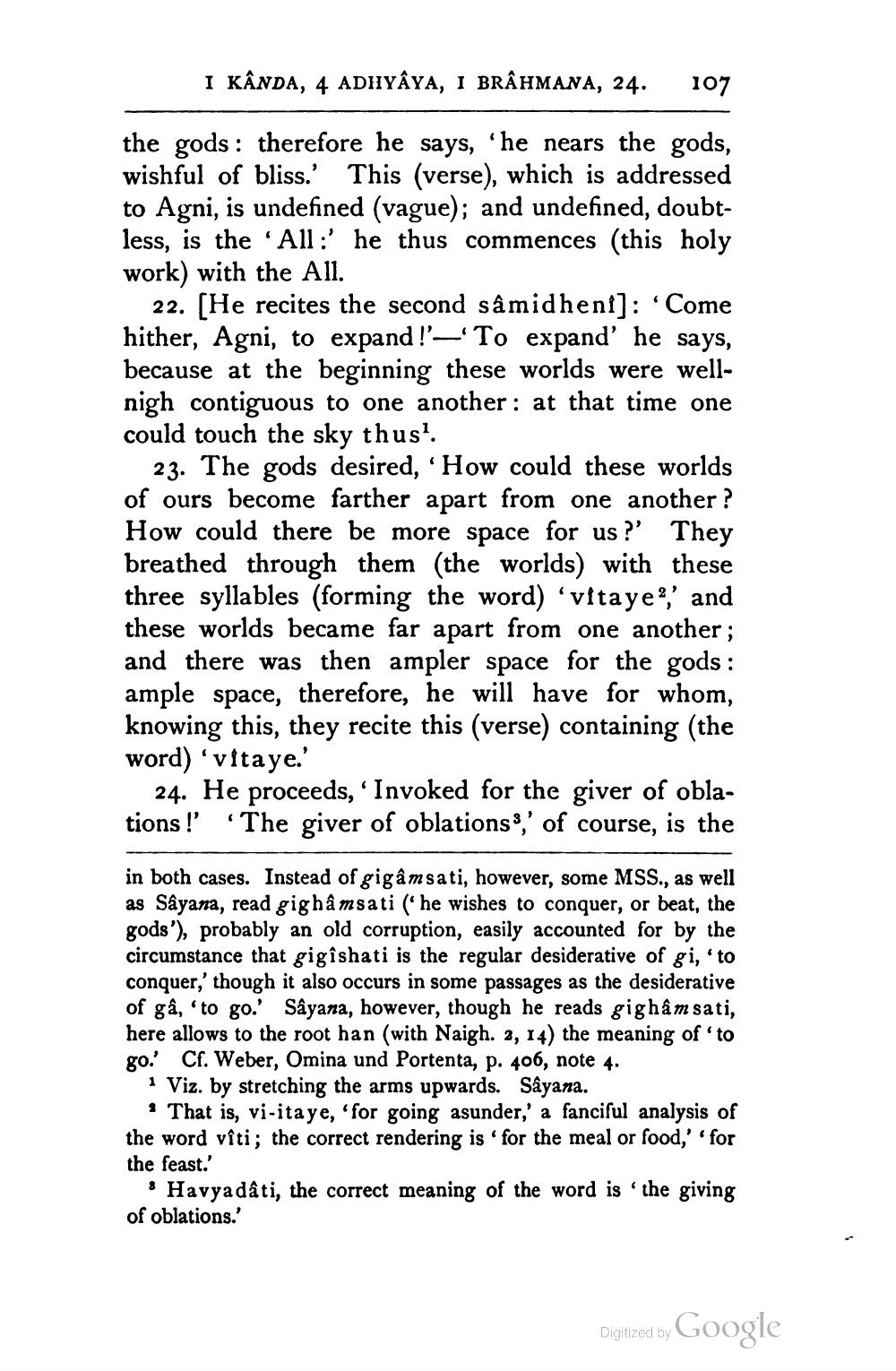________________
I KÂNDA, 4 ADHYAYA, I BRÂHMANA, 24.
107
the gods: therefore he says, 'he nears the gods, wishful of bliss.' This (verse), which is addressed to Agni, is undefined (vague); and undefined, doubtless, is the 'All :' he thus commences (this holy work) with the All.
22. [He recites the second sâmidheni]: Come hither, Agni, to expand !'—'To expand' he says, because at the beginning these worlds were wellnigh contiguous to one another : at that time one could touch the sky thus?
23. The gods desired, 'How could these worlds of ours become farther apart from one another ? How could there be more space for us ?' They breathed through them (the worlds) with these three syllables (forming the word) 'vitaye?,' and these worlds became far apart from one another; and there was then ampler space for the gods : ample space, therefore, he will have for whom, knowing this, they recite this (verse) containing (the word)'vita ye.'
24. He proceeds, 'Invoked for the giver of oblations!' The giver of oblations 3,' of course, is the
in both cases. Instead of gigamsati, however, some MSS., as well as Sâyana, read gighâmsati ("he wishes to conquer, or beat, the gods'), probably an old corruption, easily accounted for by the circumstance that gigishati is the regular desiderative of gi, 'to conquer, though it also occurs in some passages as the desiderative of gâ, 'to go.' Sâyana, however, though he reads gighâm sati, here allows to the root han (with Naigh. 2, 14) the meaning of to go.' Cf. Weber, Omina und Portenta, p. 406, note 4.
1 Viz. by stretching the arms upwards. Sâyana.
? That is, vi-itaye, 'for going asunder,' a fanciful analysis of the word vîti; the correct rendering is for the meal or food,' for the feast.'
• Havya dâti, the correct meaning of the word is "the giving of oblations.
Digitized by Google




